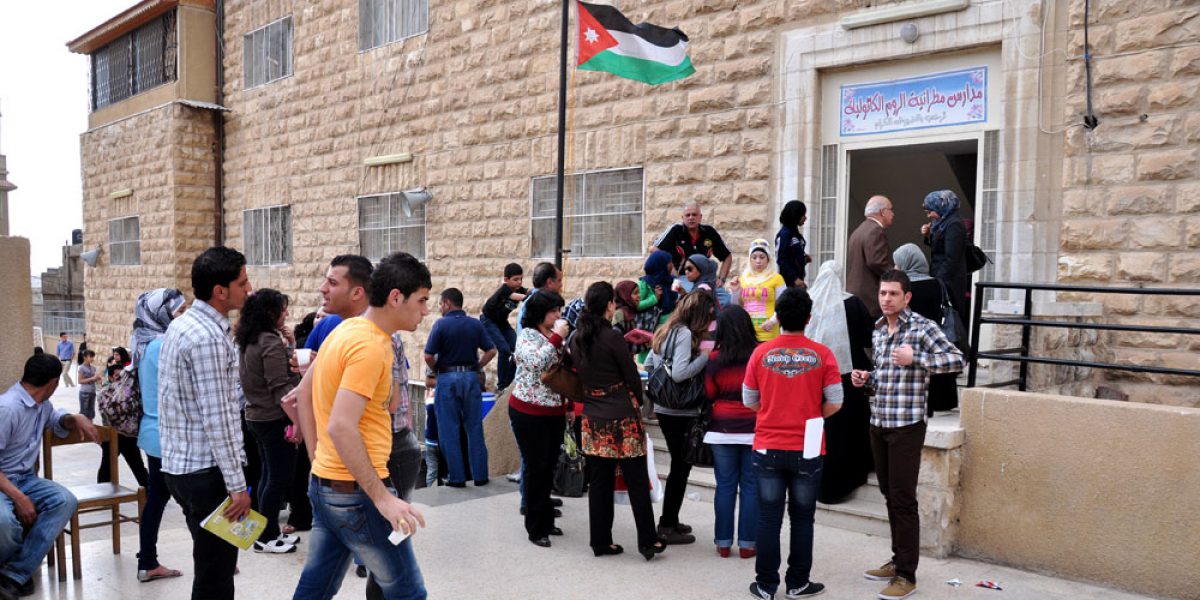Jordan: Finding Peace and Home Amidst Chaos
25 February 2013|Giulia El Dardiry, McGill University Student

I discovered Jesuit Refugee Service in Amman, Jordan through a series of haphazard coincidences. I was linking up with people who could help me with my dissertation research and one man gave me a list of numbers, of which one was for JRS Jordan. I wanted an opportunity to meet Iraqis, and yet to also give something back to them and their community, instead of only listening to their stories and converting them into “data” for my dissertation.
A few phone calls later, there I was, standing in front of the black gates to the school in Ashrafiyeh, a working-class neighborhood in Amman, ready to give up some of my time to teach at the JRS informal education project.My first English class was made up of about fifteen adults — men and women, old and young, Iraqi, Jordanian, Palestinian, Sudanese, Somali and Syrian. They all spoke English quite well, yet despite this, they still had vastly different linguistic skills.
For the entire three-month session, I struggled to find activities that kept them all focused and learning. In the end, I’m not sure if it was a total success: my class visibly thinned after the first few weeks, and there are some students who spent most classes glued to cell phones or whispering into a friend’s ear.
On a particularly frustrating day when I had the class read excerpts from The Little Prince — which they found either too silly or too boring or too antiquated — I walked out into the courtyard during a break to stretch my legs, and soothe my nerves.
On any given day, break-time between classes is a beehive of activity. People chat in small groups, discussing everything — from their classes to their families, UN procedures and yes, even politics. Children are whizzing past, screaming, snatching bags of chips and cookies from the vendor, and playing football (soccer).
And it dawned on me suddenly, that my frustration may have been misplaced, that, in other words, this might be more of a meeting place than an educational opportunity. Sure, students pick up some English, but more than anything, JRS gives them a place where, for a few hours a day, they can suture their lives back together in each other’s company, as a community.
One of the most popular students at JRS — a middle-aged woman with a smile as wide as an ocean and an effervescent energy — has finally been resettled to Atlanta, Georgia. She sends me an email, out of the blue, a few months after leaving Jordan. I am thrilled to learn that, despite the difficulties, she and her family are settling in well in the U.S. She makes it a point, however, to ask about JRS. How are her friends? How are the teachers? She misses all of them so much, she writes.
I remember the last time I saw her, rushing down the stairs to grab a coffee before her class started again, and her telling me, “I wish you could have seen Baghdad. That’s why we come here. Because it feels like home. I don’t know what I would do without it.”
Giulia El Dardiry spent time with Jesuit Refugee Service Jordan in 2012, while working with Iraqis for her PhD dissertation in Anthropology. She is a student at McGill University in Montreal, Quebec, Canada. Prior to her doctoral studies, she worked in international development and humanitarian assistance in Lebanon and Palestine.



